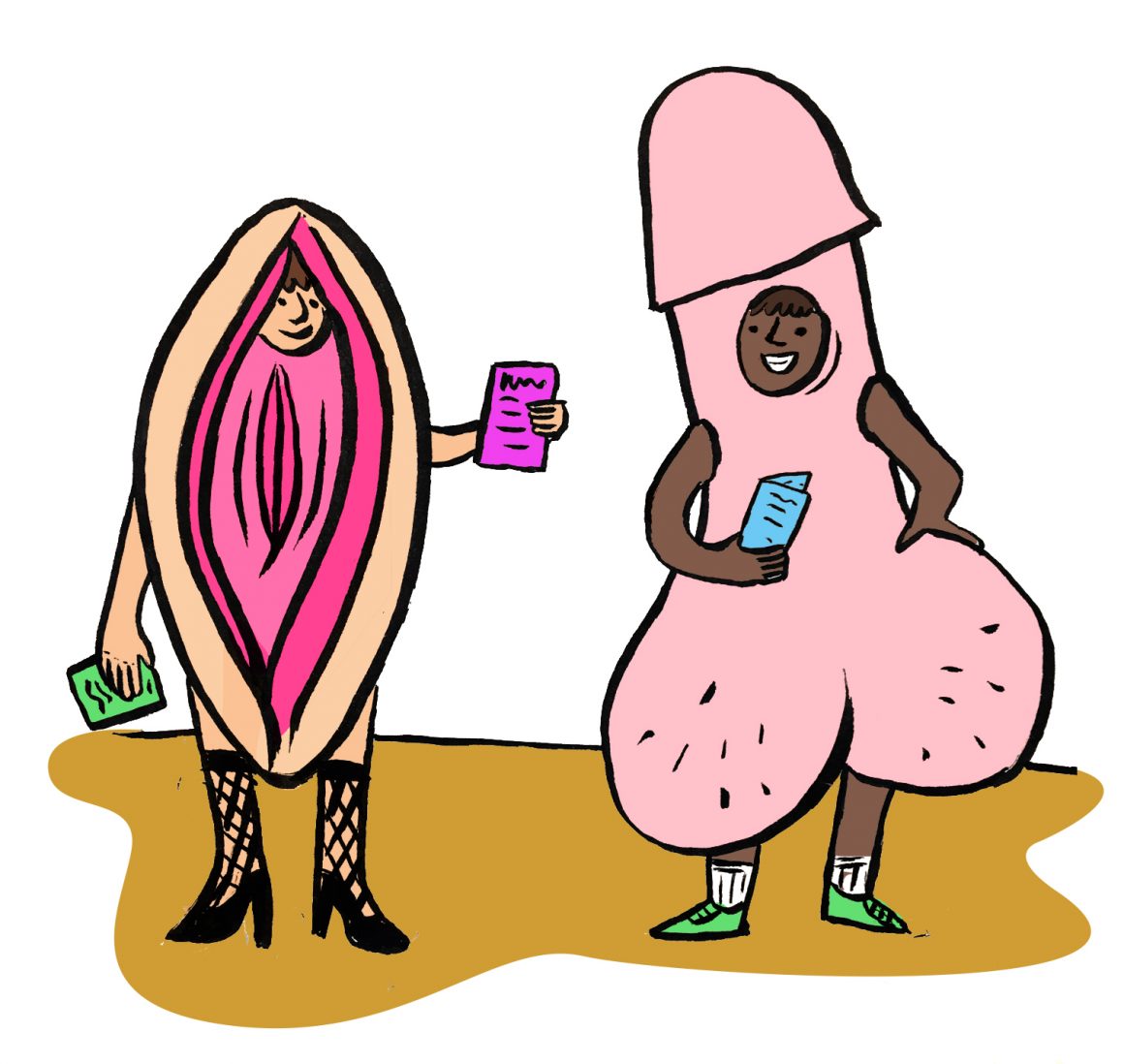
Sex Week demonstrates the power of student movements
February 5, 2018 —
Sex Week has returned for its sixth year at the University of Calgary. Guests from around the city will host events that educate students about sexuality and gender while answering their questions from Feb. 5–9. Although it’s audacious and fun to be greeted by jolly volunteers inside cartoony genital costumes, it’s important to consider the history behind this expression.
Though we are surrounded by sex imagery every day, our knowledge about sexuality is often lacking. According to a study by Eve Appeal, a United Kingdom organization that raises awareness for gynecologic cancers, only 50 per cent of men and 44 per cent of women could properly identify the vulva on a diagram. Though this study isn’t Canadian, it raises some alarming questions about our knowledge of our bodies and highlights the importance of initiatives like Sex Week.
Sex Week is a demonstration of sexual openness, a movement that has historically liberated people in LGBTQ+ communities — including for under-discussed identities, like two-spirited, intersex and asexual. It’s founded on the idea that we should be aware of our own bodies, proudly take ownership of what makes us feel good, experiment with ourselves and our partners and have fun — free of stigmas or socially ascribed barriers.
One of the most important components of Sex Week is learning how to safely perform sex acts. There are workshops on topics from BDSM to fantasies and desires. These workshops can assist with sexual self-discovery and provide opportunities to learn something new about LGBTQ+ identities. With the variety of workshops offered, anyone can learn something new and add to their understanding of sexuality and gender expressions. We should revel in this amazing community, while also recognizing that the same community fought hard to be visible.
When you’re at Sex Week events, watch for the students and student-led societies who support this event. It’s important to understand that this work is primarily being done by U of C students. Institutions like the Women’s Resource Centre (WRC) and the SU Q Centre play a critical role in this event, but their efforts only succeed because of student volunteers.
Historically, this has also been the case. The U of C’s LGBTQ+ advocacy started as a group of radical students called the Gay Liberation Front in 1972 and has evolved to the rainbow-curtained haven that is now the SU Q Centre. The WRC, a dedicated collective of student volunteers that began in the 1970s, has since transformed to the organized safe space that exists today. The popular Consent Awareness and Sexual Education club is
dedicated to ensure consent education among U of C students and staff. The club was created by students who saw a need and filled it themselves.
Progress towards acceptance and liberation for LGBTQ+ people at the U of C, as well as towards greater openness and education about sex, was always achieved through the efforts of students, not
administrative bodies. Maintaining that drive is vital for continued progress.
Students have always been at the forefront of sexual advocacy and openness at the U of C and have overcome immense difficulties to create and preserve these services. Historically, it was the men, women and those who identify somewhere else who could not be open about themselves or their identity. Those students forged communities of openness and acceptance that saved the lives of countless marginalized people who didn’t have a community to turn to.
Today’s campus community must continue the legacy of these student activists in whatever way they can. Check out the educational booths, play silly sex games and get informed on gender and sexuality identities you may not know much about. But also remember the hard-won victories of former students to have such openness on our campus. Let them inspire you to take risks and make meaningful change in your own communities.
—Trevor Landsburg, Gauntlet Editorial Board
